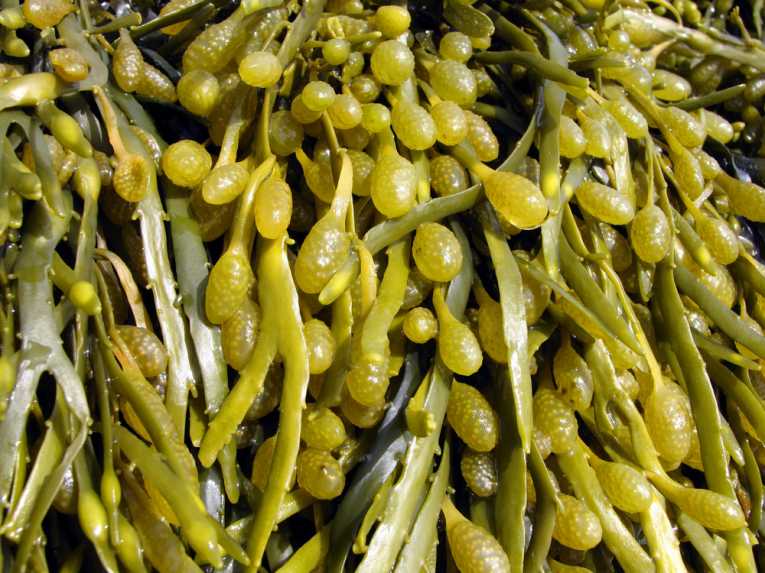Seaweed as a sustainable biofuel source - scientists engineer microbe that converts sugars from brown macroalgae into alternative green energy
American scientists have engineered a microbe that takes the sugars from seaweed (brown macroalgae) and turns it into alternative energy that could replace oil and coal, according to a study published in Science magazine.
The researchers, from Bio Architecture Lab (BAL), in Berkeley, California, say the breakthrough enables brown seaweed to be used as the raw material for an advanced biofuel.
Daniel Trunfio, BAL's Chief Executive Officer, says, "About sixty percent of the dry biomass of seaweed are sugars, and more than half of those are locked in a single sugar - alginate.
"Our scientists have developed a pathway to metabolize the alginate, allowing us to unlock all the sugars in seaweed, which therefore makes macroalgae an economical alternative feedstock for the production of renewable fuels and chemicals.
"It is both an incredible scientific achievement and a distinguished honour to be published in Science and I am very proud of our team. It is yet another strong validation of BAL's breakthrough technology," he adds.
Seaweed is ideal to be used for biofuels and renewable chemicals because it contains high sugar levels without lignin and does not need farmland or sources of freshwater.
More than 60 billion gallons of alternative biofuel could be extracted from seaweed at just three percent of the world's coastlines. Brown seaweed is already grown commercially in many countries, including at four seaweed farms run by BAL in Chile.

Seaweed farming - Seaweed's rapid growth in native saltwater environments and high sugar content make it an ideal feedstock for renewable fuels and chemicals. This image relates to a paper that appeared in the Jan. 20, 2012, issue of Science, published by AAAS. The paper, by A.J. Wargacki at Bio Architecture Lab in Berkeley, CA, and colleagues was titled, "An Engineered Microbial Platform for Direct Biofuel Production from Brown Macroalgae; Credit: Image courtesy of Bio Architecture Lab, Inc
BAL received U.S. Department of Energy's Advanced Research Projects Agency - Energy (ARPA-E) status for DuPont's research into how to convert sugars from seaweed into the fossil fuel substitute, isobutanol.
ARPA-E Program Director Dr. Jonathan Burbaum says the new discovery opens up new opportunities for the production of biofuel without using precious food sources.
"When fully developed and deployed, large scale seaweed cultivation combined with BAL's technology promises to produce renewable fuels and chemicals without forcing a trade-off with conventional food crops such as corn or sugarcane."
BAL has also received backing from the Concurso Nacional Grant from InnovaChile CORFO and Statoil, the Norwegian oil giant and the world's biggest offshore oil and gas producer, to help finance the project.
The Californian lab aims to help secure the production of the world's cheapest, most scalable, and sustainable source of sugars from native, aqua-farmed seaweed to create biofuels and the production of renewable chemicals.
BAL, which is a privately held company, is backed by various companies including Aurus Bios, Austral Capital, Statoil Venture and X/Seed Capital.
It also receives financial backing from the U.S. Department of Energy's ARPAE program and from InnovaChile CORFO, the Chilean Economic Development Agency in partnership with the Universidad de Los Lagos.
BAL has a strategic partnership with the Norwegian oil and gas company, Statoil.
Full details of the seaweed biofuel project are contained in the Science magazine article, An Engineered Microbial Platform for Direct Biofuel Production from Brown Macroalgae.










